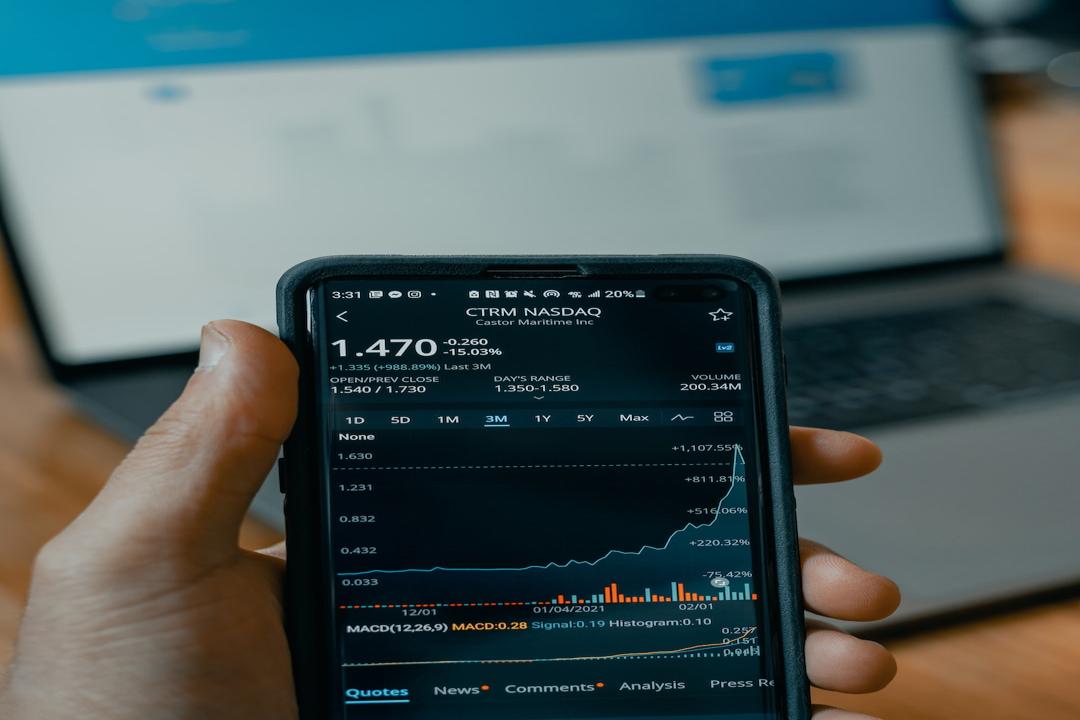In the midst of the Bitcoin exchange-traded fund (ETF) frenzy, there have been numerous wild price predictions. Many experts anticipate a “sell the news” event that will cause Bitcoin’s price to plummet by 30% below its current levels if the ETFs are approved by the Securities and Exchange Commission (SEC).
However, I have a different perspective. In fact, there is a compelling argument to suggest that Bitcoin will rally another 10% above its current levels and reach the $50,000 mark before experiencing a slight pullback in the short term.
With my extensive experience in traditional asset management, I know that when BlackRock makes a statement, the market should take notice. BlackRock seemed confident in the days leading up to January 10th that the ETF approval would be granted.
The applicants for the ETFs have also disclosed important details about their products, particularly the fees they plan to charge. These fees are quite reasonable in the world of ETFs. BlackRock, for example, intends to charge only 0.2% for the first 12 months or until the fund reaches $5 billion in assets, and then increase the fee to 0.3%. Invesco is waiving its fee entirely for the first six months or until it reaches $5 billion in assets, and then charging 0.59%. ARK Invest and VanEck have set their fees at 0.25%, with ARK waiving the fee for the first six months or until the product reaches $1 billion. In comparison, the largest Bitcoin futures ETF, ProShares Bitcoin Strategy ETF, charges 0.95%.
These fee disclosures indicate that the providers are well-prepared and focused on acquiring assets. The level of competition among them is reminiscent of the fee wars that occurred among providers of broad-market index ETFs, particularly the S&P 500 ETFs, in the early 2010s. With such strong momentum and anticipation, it is highly unlikely that the ETFs will be rejected at this stage.
Furthermore, the ambitious asset acquisition goals of the ETF providers suggest that billions of dollars will flow into Bitcoin within a short period of time. These providers have conducted thorough research and consulted with numerous clients over the past few months, making their estimates highly reliable. If BlackRock, Invesco, and ARK meet their targets, they alone could bring $11 billion into Bitcoin within a year.
It is entirely possible that even more money will pour into Bitcoin through these investment vehicles. This signifies the recognition of Bitcoin as a legitimate and regulated investment asset, on par with gold, which has a market cap more than 10 times greater than that of Bitcoin. Consequently, we can expect billions of dollars to flow into the ETFs, along with increased interest from crypto-savvy investors who will access Bitcoin through exchanges. Major players like Coinbase will benefit from this increased interest, as will the broader cryptocurrency market, which typically follows the price movements of Bitcoin.
Given the positive impact of ETF approval, I do not foresee the significant selling pressure that some predict. By examining the current dynamics of Bitcoin investments, it becomes clear that a 30% sell-off is unlikely. As of October, 76% of Bitcoin holders were long-term investors, the highest level in history. These investors are not likely to sell at this point. This is precisely what they have been waiting for, and most of them anticipate Bitcoin reaching an all-time high of $100,000 or more. It is simply not the right time in the market cycle for them to sell.
Therefore, the selling pressure will mainly come from short-term traders who have placed orders with specific strike prices. Once these strikes are hit, we can expect a temporary pullback, which is typical for Bitcoin rallies. However, as we have seen repeatedly in recent months, these pullbacks are short-lived and are usually followed by a rebound in prices. This rebound will not be solely driven by the ETF approval but will also be influenced by the Bitcoin halving event taking place this year. In the past, these events have consistently led to significant Bitcoin rallies and new all-time highs, and it is reasonable to expect the same this year.
Considering all of these factors, it is highly likely that Bitcoin’s price will increase by 25% to 30% in 2024, reaching around $60,000 from its current level of $46,000.
Of course, there are potential threats to this rally. The approval of the ETFs will result in increased regulatory pressure on the crypto ecosystem, which could exert downward pressure on prices. The global macroeconomic environment will also play a role, but it remains to be seen whether it will have a positive or negative impact. Nevertheless, overall, 2024 is a year where the pessimism surrounding Bitcoin is unwarranted. This is the year when Bitcoin will finally go mainstream.
Lucas Kiely is the Chief Investment Officer for Yield App, where he oversees investment portfolio allocations and leads the expansion of a diversified investment product range. He previously held the position of Chief Investment Officer at Diginex Asset Management and was a Senior Trader and Managing Director at Credit Suisse in Hong Kong, where he managed QIS and Structured Derivatives trading. He also served as the Head of Exotic Derivatives at UBS in Australia.
Disclaimer: This article is for general information purposes only and is not intended to be and should not be taken as legal or investment advice. The views, thoughts, and opinions expressed here are solely those of the author and do not necessarily reflect or represent the views and opinions of Cointelegraph.


